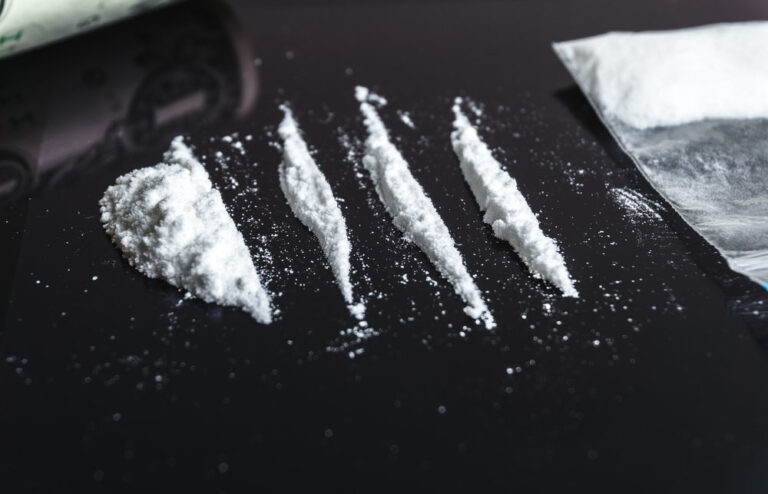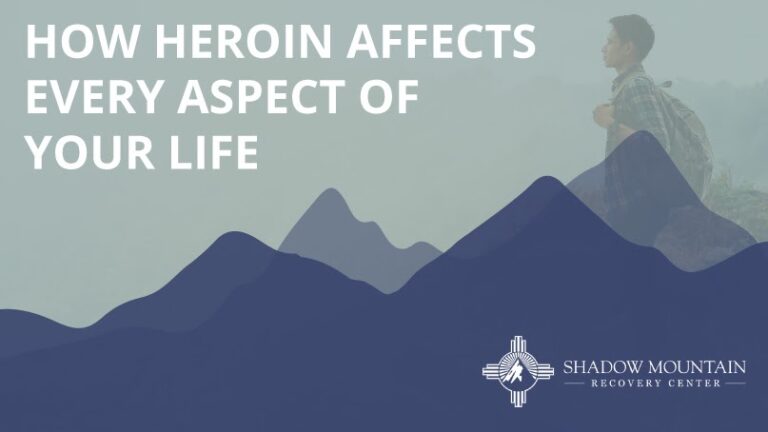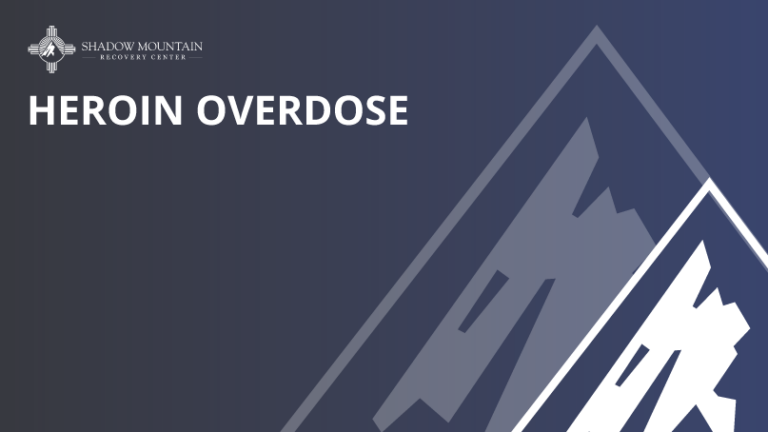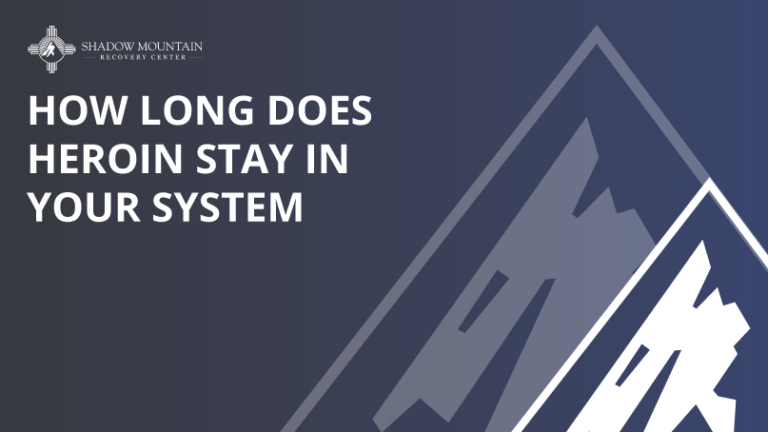How Long Does Heroin Withdrawal Last?
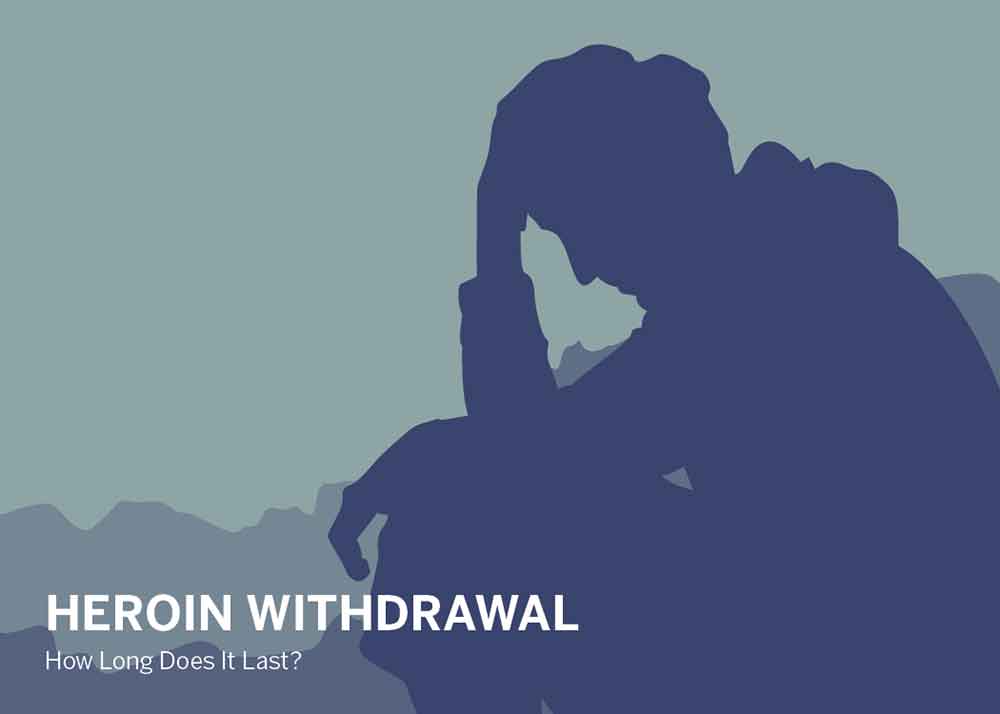
I was afraid it was hitting me already. That didn’t seem to add up because it’d only been something like eight hours since I had some. It’s something I worried about a lot. I was always thinking about the next time I could get some, always with a small nudge from a place in my brain I didn’t have a name for. Felt like a magnet was pushing and pulling me around.
I thought I might be going through heroin withdrawal. The first thing I noticed was how anxious I felt. This real keyed-up feeling, you know? Like my arms and legs were alive and making their own decisions if that makes sense.
Couldn’t stop sweating, couldn’t get over feeling like I was going to puke. I told a friend, and they told me it was definitely withdrawal. I didn’t believe them at first. I’d done heroin before I went to bed and I’d slept through the whole night. How was it even possible I’d be withdrawing that fast?
Was it even possible? Whether it was or not, I had that magnet inside me again, there was only one thing I could think about. By the time the diarrhea started, I was ready for it to stop, didn’t matter how.
Heroin Withdrawal Symptoms: Quick To Arrive, Slow To Leave, And Where To Get Treatment
For anyone struggling with heroin use and/or addiction, trying to start the path to recovery can seem like trying to push a car that’s in “park.” They can get their hands on it, they can even shift it a little, but there might be a sense of being stuck, totally locked into place.
There are multiple reasons why recovering from heroin use may feel difficult, and we’re going to look at them. We’re also going to talk a bit about what heroin is and then chat about withdrawal symptoms, what they are, and how long they last.
There are ways to get past addiction and begin lifelong healing. One important thing to read upfront is that you are not alone. Remember that the struggle, the one that feels like trying to push a parked car, just needs some help to get through.
A Quick Rundown of What The Heroin Drug Is
Heroin is derived from the poppy flower and is classified as an opioid and/or opiate (the words are used interchangeably). Although the poppy is naturally occurring, heroin itself has to be synthesized through a specific process. Other opioids like morphine and oxycodone are derived from the same plant and created in different processes. Fentanyl, on the other hand, is a completely synthetic opioid, meaning it is made entirely in a laboratory.
Generally, heroin is being consumed by injecting (sometimes called intravenous use), sniffing/snorting, or by smoking it (sometimes called “freebasing,” which can also be used to describe smoking cocaine). It’s most commonly found in a powder form but is sometimes seen as a dark, gel-like substance called black tar heroin.
What Heroin Does To Your Brain and Body
All of our brains and bodies have things called opioid receptors in them. They’re natural and are there from birth; they do not form from taking an opioid. The receptors are in our brain and along our central nervous system.
Think of them like light switches. The opioid receptors we have, control certain feelings like pleasure but also relate to how we feel pain. So, the receptors can either be activated or not, and when they are activated they release certain effects. You may feel less pain due to the opioid receptor being activated, or you might feel intense pleasure.
And like we pointed out above, heroin is an opioid, but it’s far from the only one. That means there are quite a few possibilities for someone to become addicted to a drug or substance based on their opioid receptors being activated.
Studies have shown there is a link between the misuse of prescription opioids and heroin use. In fact, almost 80% of those who begin using heroin have at one point struggled with taking prescription opioids.
How Heroin Addiction Works
The simplest explanation is that the feelings produced by heroin are abnormal versions of healthy and normal ones, and when the body feels them it starts a cycle. Because our bodies have those opioid receptors we mentioned and already have the ability to feel pleasure and euphoria, when those things flood our system unnaturally it can be dangerous.
Your body knows how amazing it felt and so the quick return to feeling “not amazing”—in this case returning to normal levels of pleasure and pain—can trigger your brain to tell your body it needs more of whatever caused the onrush of pleasure. If you used heroin, this means you may start feeling the need or thinking a lot more about doing the same thing again.
Another way this can play out is your body starts to become used to those newer levels of pleasure and reduced pain, which is called tolerance. You will need to start upping the amount of heroin you use in order to produce the same results. This can lead to dependence, which is where your body ceases to create normal levels of pleasure and certain other feelings without heroin.
And finally, that can all lead to addiction. You begin doing more and more heroin, your body becomes used to it, and eventually, you are defining every day by whether you have heroin or not, and where you can get some. This can mean you sacrifice your daily life, including your job and personal relationships, in order to obtain heroin.
How Quickly Does Heroin Withdrawal Start?
There are more than a handful of factors that can help determine how long someone will be affected by heroin use, including their age, weight, and length of use. Generally, however, it is possible to determine the standard experience for heroin use and withdrawal.
First, according to this study, heroin is considered a “short-acting” opioid. Someone can begin feeling heroin withdrawal symptoms as soon as eight hours after it’s entered their system, and as long as 24 hours later.
This is potentially a surprise to some because the concept of withdrawal is sometimes seen as something that happens to a person after a long period of time. But withdrawal is not something that only happens when entering addiction treatment programs.
Since a person can experience heroin withdrawal less than a day after they use the drug, that means it’s possible to struggle with the symptoms while not in active recovery. And what are the symptoms of heroin withdrawal? They can include
- Diarrhea
- Vomiting
- Nausea
- Muscle cramps (especially in the abdomen)
- Excessive sweating
- Hot and cold flashes
- Insomnia
- Anxiety
How Long Does Heroin Withdrawal Last?
This is where the need for medically-supervised and clinical supervision comes into play. Quitting “cold turkey” can not only be difficult to manage due to the inevitable urge to use heroin again but also because the withdrawal symptoms can last for quite some time.
Heroin withdrawal symptoms have been shown to last anywhere between four and 10 days. This is one of the reasons that struggling with heroin addiction can seem like an impossible problem to solve.
If someone can begin going into heroin withdrawal only eight hours after they’ve last used heroin, and if those withdrawal symptoms could potentially last for four days or even longer than a week, the struggle to not use heroin becomes a massive burden.
This is why treatment for heroin addiction can help.
Heroin Detox: Asking for Help With Heroin Addiction At Our Detox Center
There is no shame in asking for help. At Shadow Mountain Recovery Centers we use evidence-based treatment methods to help anyone who is struggling with addiction. Our Heroin detox and inpatient rehab treatments are safe, comfortable, and utilize alternatives to 12-step programs.
We want you to have what you need in order to heal, which is why we also accommodate 12-step programs for those who know that setting will help them heal. We want your lifelong healing and recovery to start as soon as possible.
There is always someone available to talk with you at Shadow Mountain. Whether you email or call us at 505-657-2117, we want you to know we are always here. When you know you are ready, we will be as well. Reach out and let’s start your recovery. You are worth it.


